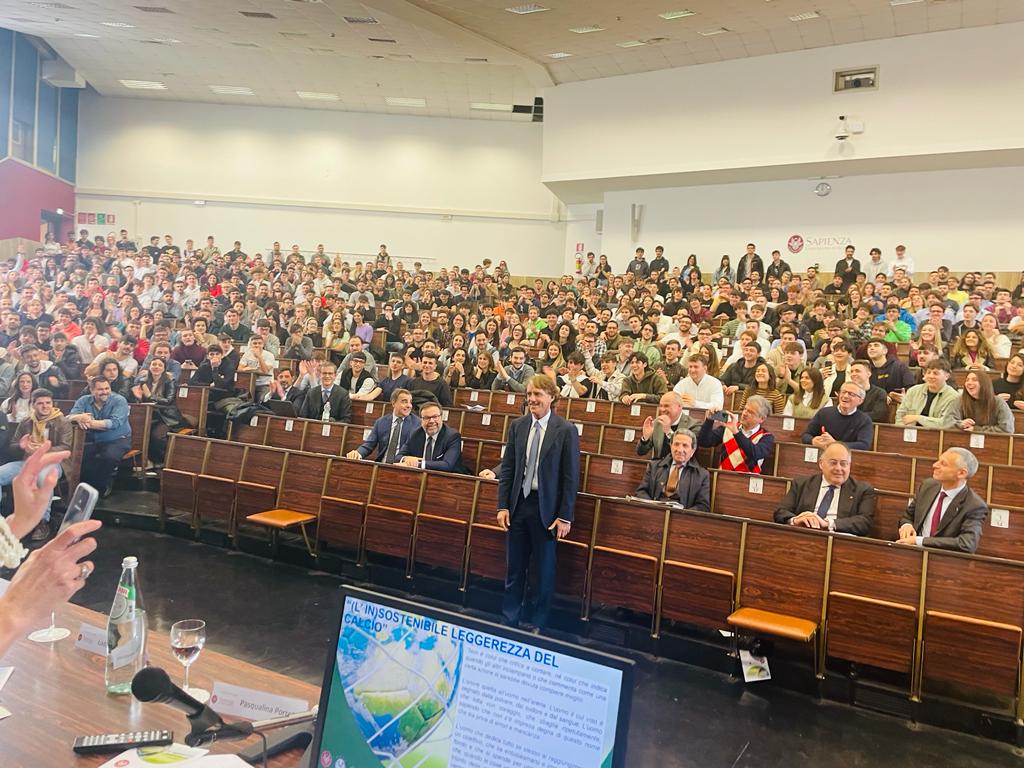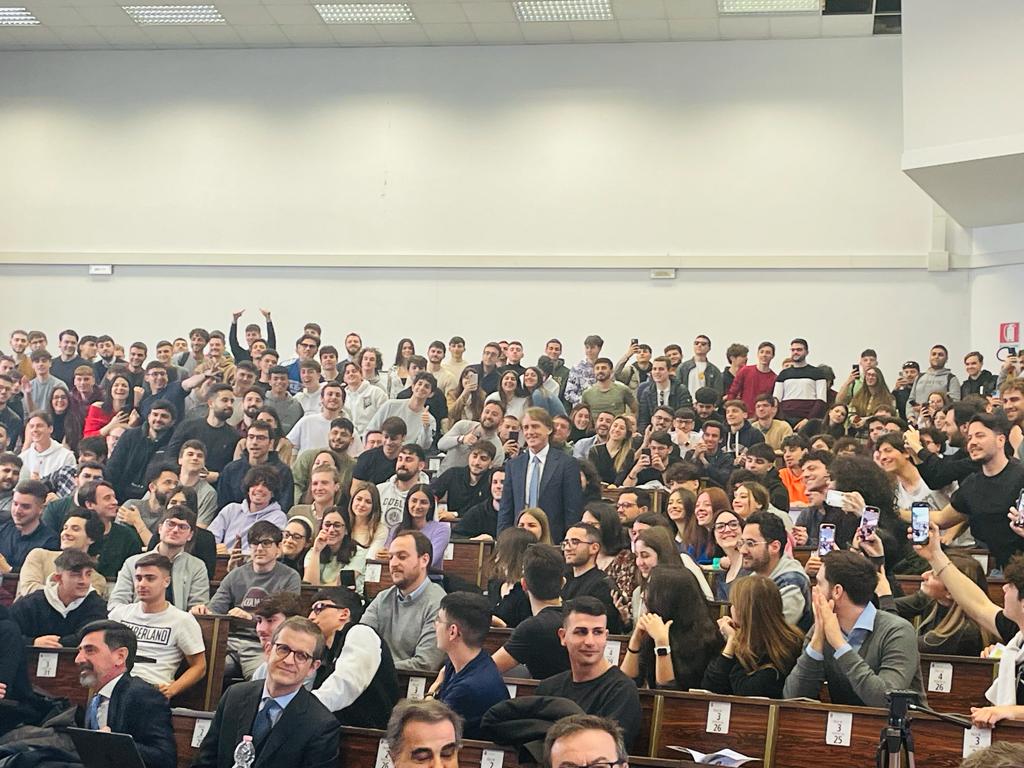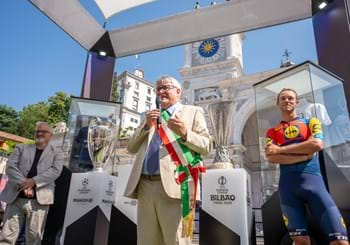
Gravina and Mancini at 'La Sapienza' University. The President: 'Growth must be accompanied by cost control'
The FIGC president and the national team coach were guests at the event 'The (In)sustainable lightness of football', dedicated to economic-financial sustainability and social policy. Many students flocked to the Aula-1 Tarantelli of the Faculty of EconomicsThursday, March 30, 2023

A crowd of students welcomed FIGC president Gabriele Gravina and national team coach Roberto Mancini at La Sapienza University in Rome, venue of the event 'The (In)sustainable lightness of football', an initiative dedicated to the world of football and its economic-financial and social sustainability. During the event, which was held in Aula 1-Tarantelli of the Faculty of Economics, it was analysed how the evolution of regulatory contexts, the increasing globalisation and digitalisation of the football industry are radically changing the business model of sports clubs, their revenue sources, the economic-financial balance, the attitude of the consumer-fan and the appeal to international investors.

"I believe that the concept of growth must be accompanied by a natural phenomenon of our world: costs must be brought under control otherwise we go nowhere,' explained Gravina. "Our economic dimension is one that many read through a series of parameters that are legitimate in the field of economics, such as balance sheets, revenues, costs or losses. But football goes beyond the rule of the balance sheet. It has a social impact. The Federation has been working on these aspects for a long time". The president of the Football Association went on to explain how football has an impact on the country's GDP of 0.58%: "And all this generates interest, but when the economic dimension grows, the social dimension must also grow. For example, we are delivering 24,000 items of national team clothing worth 400,000 euro to Ukraine. This is why football must be the place for confrontation and respect, keeping out everything that is far from this".

Mancini, on the other hand, after the first two Euro 2024 qualifying matches for the national team, took stock of the situation of the team and Italian football. "The lack of talent is a problem that has existed in Italy for years, now it is only greater - the coach's words -. When I played there were few foreigners, now it is the opposite. We have difficulty finding talent. The biggest problem is the possibility for young people to express themselves. If someone is young but has quality he must have the chance to play, to make his mistakes and then have other chances. I try to do this in my job because there are many young people in Italy and if they are given the chance to express themselves they will give us great satisfaction. In my players, I look first of all for technical quality and then, also, the way they behave with their teammates. I take as an example the call ups for the European Championship we won, there were many good players who were left out and deserved to be there, but in that case we made choices also based on the behavioural characteristics that led us to win an almost impossible European championship".




